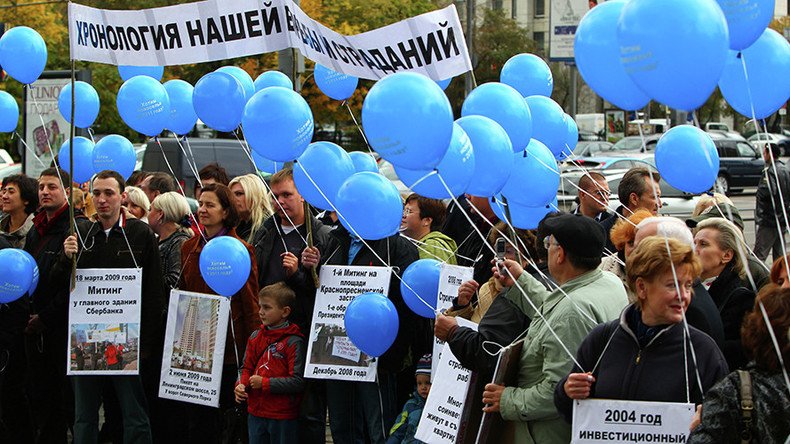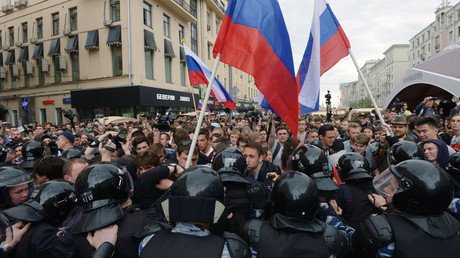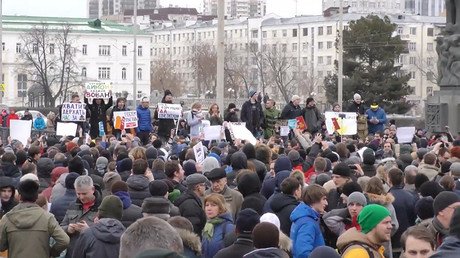Social protests in Russia outnumber political ones 3:1 – research

The number of protests across Russia has increased since the beginning of the year, with some three-quarters of rallies being on socio-economic issues. Just over a quarter were purely political events, according to a report by a pro-market think tank.
In the study titled “Protest activities of Russians in the third quarter of 2017” the Center for Political and Economic Reforms said that the overall number of protests in the country had increased steadily throughout the year. The center’s experts registered 284 public protests in the first quarter of the year, 378 in the second and 445 in the third.
However, most of the actions were prompted by social and economic grievances or work conflicts. The report states that in the third quarter of 2017, 312 protests were held over socio-economic issues, such as, for example, the rallies of real estate investors who wanted the state to compensate them for losses in various scams. 27 protests were held by workers who got into conflicts with owners and managers of their enterprises, most often over unpaid wages. Only 106 protest events held in the third quarter of 2017 had a political agenda.
The head of the Center for Political and Economic Reforms, Nikolai Mironov, said in comments to RBC that he and his colleagues saw the ongoing economic crisis as the main reason behind both the increase in protest activities and the protesters’ mostly socio-economic agenda. He added that another factor contributing to the situation was the authorities’ inability to solve the social conflicts in times of crisis.
“Aggravation of conflict remains the only effective way for hired workers to defend their rights,” the center’s experts wrote in their report. However, they also noted that in some situations conflicts had been resolved with the help of regional authorities. In the Siberian city of Tynda, for instance, the administration of the local energy company had planned to impose reduced workdays, but canceled because of pressure from the city and regional governments.
The experts also wrote that many of the events held under political slogans were rooted in long-standing, unresolved economic and social conflicts. They added that the number of conflicts could be reduced in future if the authorities paid more attention to the development of trade unions, independent municipal legislators and NGOs specializing in human rights.
Vladimir Putin’s press secretary Dmitry Peskov commented on the report on Tuesday saying that the increase in protest activities could be explained by the upcoming presidential election. He added that similar tendencies can be observed in any other country in the world.














